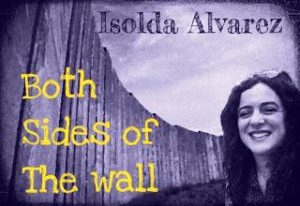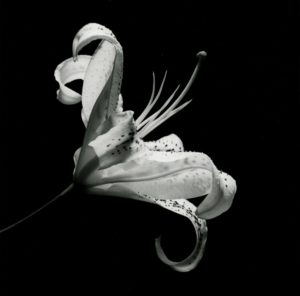The beginning of this century has brought many changes… we have been catching up with them long time ago. One of the examples that comes to mind is the work related to the new forms of families that took place within the WAP not long ago. New forms of families, new ways of establishing bonds, neurosis that don’t need the name of the father to hold together its knot, psychosis that can sustain themselves keeping the knot as tight as they can only serving themselves with the imaginary identifications offered by our non-stoppable contemporary world.
 Language is not excluded. In fact, the topic of language is “trending” now: “Inclusive Language”. Summarizing many definitions I found during my research for this article, we could say that this definition of language tries to avoid any possible bias towards a particular sex or social gender. The main goal is “to ensure that a piece of communication–it may be written or spoken–does not discriminate against groups of people in the community.” (Retrieved from: https://www.eliteediting.com.au/inclusive-language/)
Language is not excluded. In fact, the topic of language is “trending” now: “Inclusive Language”. Summarizing many definitions I found during my research for this article, we could say that this definition of language tries to avoid any possible bias towards a particular sex or social gender. The main goal is “to ensure that a piece of communication–it may be written or spoken–does not discriminate against groups of people in the community.” (Retrieved from: https://www.eliteediting.com.au/inclusive-language/)
One could ask, if we have an “Inclusive Language”, do we have an Exclusive Language? Apparently yes, we do. Language can be Inclusive or exclusive depending on the words used to make reference to a group of people, a profession, etc. “It involves somebody speaking words that « exclude » someone and makes them feel rejected, not valued, outcast from a group or society.” (Retrieved from: https://ielgroup.weebly.com/inclusive-vs-exclusive-language.html)
We do know that languages change over time, we do know too that the relationship of the speaking being with language is not an easy one; it is a relationship inhabited by jouissance. Here it is the issue: in all this movement ,there is an effort to encompass every possible and potential way of jouissance. Trying to name, trying to grasp jouissance based on the words chosen and used in any regular conversation is a failed intent from the go. If someone “feels rejected, not valued or outcast” is not because of the pronoun or adjective used or using “their” as the singular pronoun (which is not); feeling rejected, not valued or outcast is inherited to being human. Although naming something makes it exist, naming something doesn’t resolve the core of this issue, especially when the main focus relies on gender issues. The Inclusive Language is not exclusive for the LGBTQ+ community, feminist groups, ethnicity or racial issues.

White Gauze – 1984 – Robert Mapplethorpe
Although socially and politically speaking is an interesting movement, trying to give a place (via signifiers) to name what hasn’t being named because its new or different. For example, Spain started more than 10 years ago, when they change their own ways of legislation and labeled, regarding same-sex couples when adopting children, instead of “father” and “mother” they rather use “progenitor A” and “progenitor B.” Another example: London (a report issued by CNN) they stated that “In the latest example in the growing use of inclusive language, designed to avoid excluding particular groups of people, some university groups in the United Kingdom have started using the term « womxn » rather than « women » in official communications.” (Retrieved from: https://www.cnn.com/2018/11/27/uk/womxn-inclusive-language-gbr-scli-intl/index.html ) . The idea is to include Trans women too; but is the same when using Mx. including Trans men as well. The problem that they have found (not only in English because in Spanish -especially in Buenos Aires, Argentina: chicos, chicas and chiquxs), is that there are still doubts about the pronunciation of “womxn” or “mxm” should be pronounced. Then, “speaking” brings up another issue…
In this sense, in a time in which all-has-to-be-said “new forms” of jouissance demands new ways to talk about it. Psychoanalysis -especially Lacanian Psychoanalysis- has been in touch with the vicissitudes of language from its beginning. Lacan dedicated the first decades of his teachings to deal with this, moving forward from logic to topology, since language cannot and will not grasp what is at play when it’s about the Real and jouissance.
Because language is not able to grasp what is in play when is about jouissance or the Real, the issue here it’s not about naming nor labeling; what is at stake here is how are we going to open up a place for the forms of jouissance that scape the naming, and in this effort how do we -as psychoanalysts- get rid of our own biases toward these issues?

Lily – Robert Mapplethorpe






